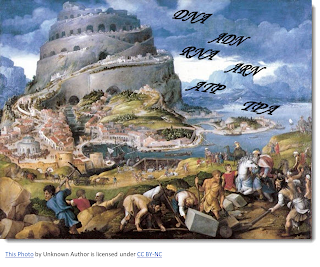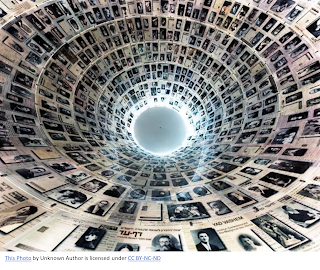A NAME AND A PLACE: How is Ruth Like Abraham? by Bobbie Ann Cole
Pentecost, last week, coincided with the Jewish festival of Shavuot (Weeks), which remembers how Moses struggled down from the mountain bearing tablets of stone engraved with God’s law and the harvest season. The Book of Ruth, whose story is set at harvesttime, is read in synagogues everywhere, into the night.
Is harvest the only reason for reading Ruth? Rabbi Fohrman of Aleph Beta believes there are much bigger issues of nationhood that connect Ruth with Abraham.
SIMILARITIES
Both have faith in God, leave the land of their birth for
Israel and both possess chessed, (lovingkindness).
Ruth has come from Moab, to a land that she did not
know before, (Ruth 2:11). Abraham, (Abram) goes forth from his birthplace and
father’s house, “to a land that I will show you,” (Gen.12:1).
Ruth’s lovingkindness towards her mother-in-law Naomi
is recognized by redeeming relative Boaz, (Ruth 1:16-17). Abram demonstrates lovingkindness
in his hospitality to three strangers, (Gen.18:1-16).
WHY ABRAHAM?
God has promised Abraham that he and his descendants will be great, even kings, (Gen.17:6), while Ruth, at the other end of the story, will be great-grandmother to the beloved King David, of great faith, the fulfilment of God’s promise to Abraham.
Sometimes, the reasons behind God’s choices are not
immediately obvious and this is so with Abraham. What singles him out? Rabbi
Fohrman refers us to his genealogy. (Gen.11:27-32). There, we read that Abraham
married Sarai (Sarah), his brother, Nahor, married Milcah, the daughter of his
brother, Haran, who had died, presumably young. Haran also has a daughter,
Iscah and a son, Lot.
Jewish sages suggest that Iscah is in fact Sarah,
because the etymology of both names has to do with princedom, which Rabbi Fohrman
accepts.
LEVIRATE MARRIAGE?
Marrying Haran’s children may echo the spirit of Levirate
law, whereby a man should marry his brother’s widow, (Deut. 25:5-6), and their
first child perpetuates the late brother’s name. Ensuring a name for one’s late
brother constitutes an act of lovingkindness.
In Ruth, Peloni Almoni, (Mr. Nobody!), Elimelech’s brother, is unwilling to marry Ruth under Levirate law, because it would spoil his own inheritance.
 TOWER OF BABEL
TOWER OF BABEL
Abraham’s kind character is contextualized by its position
in the Bible, immediately following the story of the Tower of Babel. God’s
reaction to those people’s aim to build a tower that reaches heaven: “They
are one people with one language and this they have chosen to do?”
(Gen.11:6).
Their intention is solely to make a name for themselves.
Their story is immediately preceded by the Flood, where lives were abruptly cut
short and people swept away, with no name or place.
Having a name in the Land is of prime importance within
Judaism, to this day. It is the rationale behind Jerusalem’s Holocaust Museum, Yad
v’Shem,— ‘A Name and a Place’.
God is underwhelmed that the builders of the Tower
seek to create ‘A Name and a Place’ for themselves!
LEGACY
In sharp contrast is Abraham and Nahon’s lovingkindness
in marrying their late brother’s daughters, to ensure his legacy.
Why does God call Abraham
and not Nahon, too? God called both to go with their Father, Terach, to the
Land of Canaan. But they had stopped, along the way, in Charan, and settled
there, “vayeshvu sham,” (Gen.11:31).
In Genesis 12:1-2, God
calls Abraham a second time: “And the Lord said to Abram, ‘Go forth from your
land and from your birthplace and from your father’s house to the land that I
will show you. And I will make you into
a great nation, and I will bless you, and I will aggrandize your name, and (you
shall) be a blessing.’”
Nahor remains but Abraham,
the eldest, obeys, on the way
building an altar to God, whereas those before had tried to build a high tower
to themselves.
SIMILARITIES
Abraham’s story in a nutshell is of a father and sons,
one of whom tragically dies. His brothers try to remedy his loss of legacy
through quasi-levirate marriage and God leads him into the land of his
inheritance, Israel.
Centuries later, in Ruth, Elimelech abandons the Land
of his inheritance during a famine. He goes to Moab and settles there (vayeshvu
sham). His sons, whose
Hebrew names mean ‘sickness’ and ‘destruction’ die in Moab.
Rabbi
Fohrman calls them, ‘tower builders’, futilely “destroying the legacy of their
father” by taking Moabite wives, whose destiny has no connection to Israel.
Elimelech’s line will
have no name or place in the Land.
A NAME AND A PLACE
His widow, Naomi, returns
to Israel in despair, unable to envisage any possibility of a levirate marriage-like
situation that would enable her husband’s line to continue. She tells her two
daughters-in-law, the widows of her sons, to leave her and return to their own
people.
One of them, Ruth,
leaves her birthplace and her sister (in-law) just as Abraham left his
birthplace and brother, Nahor. Like Sarah, she would seem to be barren, without
hope of perpetuating her husband’s name.
After vowing loving loyalty
to God and to Elimelech’s people, she “happens” to glean in the field of Boaz,
the redeemer relative.
SPREAD YOUR WINGS
There, Boaz asks God to
“spread his wings” over her in recognition of her lovingkindness towards her
mother-in-law. Later, after the harvest, she will throw this same metaphor back
at him when she confronts him on the threshing floor: “I am Ruth, your
handmaid, and you shall spread your wings over your handmaid, for you are a near
kinsman,” (Ruth 3:9).
Boaz is willing to marry
Ruth, but there is a closer relative, Peloni Almoni, apparently an elder
brother, who selfishly refuses to provide a descendant for Elimelech by
marrying Ruth. Mr. Nobody’s main interest, as another ‘tower builder’ lies in
securing the posterity of his own name in the Land.
JESUS
But Boaz will not abandon his brother
Elimelech’s name to anonymity. He shows lovingkindness in marrying Ruth, to
perpetuate his brother’s line.
From their union will come
great kings— including Jesus Christ, our
King,— in fulfilment of God’s promise to Abraham to make him and his
descendants great.
Their child, Obed, is born
of the selflessness of both parents. His descent is of Abraham, who left his
homeland to come into the Land of Israel, but also of Haran, Abraham’s brother
who died young, through Ruth, who left her homeland to come into the Land of
Israel. The forefather of her nation of Moab is Haran’s son, Lot!
Bobbie Ann Cole is a Christian writer, speaker and teacher
· Exciting summer programme for my free group for HISTORICAL AND BIBLICAL FICTION CHRISTIAN
WRITERS ONLINE (FAB CHOW):
o
Thu June 8th - writer Slots Sue Su /
Natasha W
o
Thu Jul 13 – Know Yourself in God Workshop with
Spiritual Director, Jackie Trottmann
o
Thu Aug 10 – Writer Slots Donna / 1 Slot
available.
o
Mon Sep 11
– The Creative Disciple: Building a “Rule of Life” to Nurture Your
Growth as a Christian Artist: reflective presentation by Laura Aliese Miedema,
Christian book coach and poet.
Join this group without obligation at http://ahava.space.






Very interesting post, Bobbie, thank you. Learnt a lot from the comparisons between Abraham and Ruth! I'm sure Elimelech may have had his regrets later on! May God grant us the kind,humble and loving spirit of Boaz. Lovely post. Blessings.
ReplyDeleteI'm so glad you got a lot out of this, Sophia.
Delete